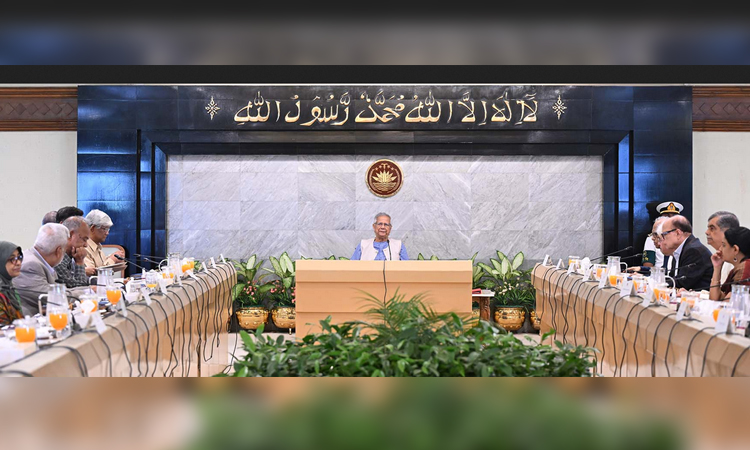News Flash

DHAKA, Nov 13, 2025 (BSS) – The Council of Advisers today approved the ‘July National Charter (Constitution Reform) Implementation Order, 2025’, at its meeting at the Chief Adviser’s Office in the city.
Chief Adviser Professor Muhammad Yunus chaired the meeting.
“Taking the July Charter signed by political parties as the main document, the interim government approved the July National Charter (Constitutional Reform) Implementation Order, 2025, at a meeting of the Council of Advisers today,” Professor Yunus said in a televised address to the nation this afternoon.
Noting that the government has adopted some important provisions to the July Charter implementation order, he said these included holding a referendum on the constitutional reform proposals of the charter and the decision to form a Constitutional Reform Council later.
Professor Yunus stated that the National Consensus Commission worked tirelessly for the past nine months to draft proposals for reforming the state.
“During the period, in a very cordial atmosphere, the political parties patiently presented arguments on the various reform proposals placed by the National Consensus Commission. Despite the differences of opinion, they tried to reduce them,” he said.
Describing it as an unprecedented event not only in Bangladesh’s political history but also for many countries around the world, the Chief Adviser said, “It is a hopeful sign for the future of politics.”
He further stated that political parties reached consensus on 30 major constitutional reform proposals, included in the July Charter, calling it a historic achievement.
While there remain minor differences on a few proposals, and a small number appear to have wider gaps, he said such diversity of opinion is not unusual in a democratic process.
Upon closer examination, he explained, even these differences are not major one as some parties preferred certain reforms to be included directly in the constitution, while others proposed implementing them through legislation.
However, there is no disagreement regarding the necessity, principles, or objectives of the reforms, Professor Yunus said.
Therefore, Professor Yunus said, despite seeming differences in public statements, a detailed analysis of the July Charter reveals that the gap between political positions is not as significant as it appears.
“This is a unique national achievement,” he said, adding that it would inspire the nation to move forward with confidence.